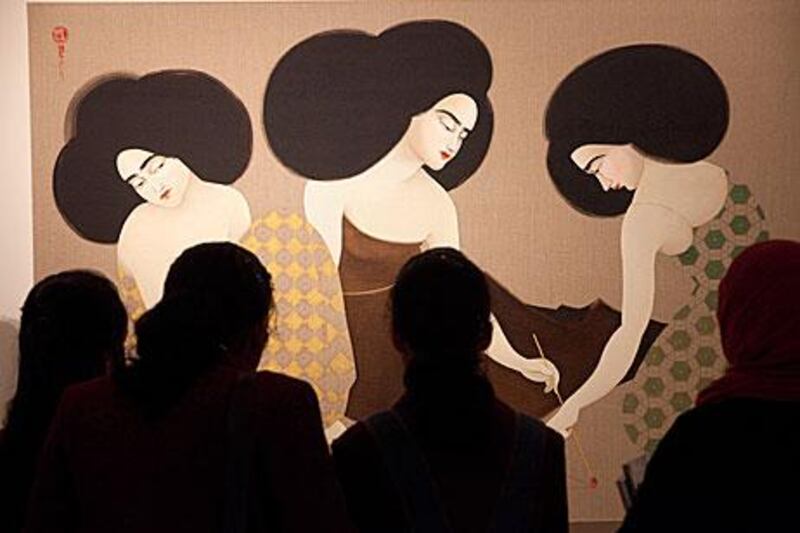DUBAI // Christie's auctioneers have alerted authorities after receiving antiquities stolen in Libya during the Arab Spring uprising.
The auction house said several items were submitted to them for inclusion in sales but their rigorous procedures to detect stolen or forged items stopped them from going under the hammer.
Thousands of priceless artefacts were looted during the battle to overthrow Muammar Qaddafi. The most spectacular heist involved a collection of 7,700 gold, silver and bronze coins and other items known as the Treasure of Benghazi that was taken from a bank vault in the city.
The items dated back to Roman, Greek, Byzantine and early Islamic times, and an expert described the crime as "one of the greatest thefts in archaeological history".
"When Libya was having trouble as a consequence of the Arab Spring and the downfall of Qaddafi, works from Libyan museums came onto the international art market within a very short period of time," said Paul Hewitt, Christie's managing director for growth markets.
"But they are conspicuous and high-profile therefore we are alert to them, and we absolutely do not touch them. We refuse them instantly and moreover we alert the authorities that we have been offered something, and then they take it into their hands."
Art theft is the third most lucrative type of crime in the world, after drugs and illegal arms sales, according to the FBI and Interpol. Last week thieves stole seven paintings, including priceless works by Picasso, Monet, Matisse and Gauguin, from Rotterdam's Kunsthal Museum.
Meanwhile, the global art market is booming. Last week an abstract work called Abstraktes Bild (808-4) by Gerhard Richter was sold by guitarist Eric Clapton in London for £21.3 million (Dh125m) - a record for a work by a living artist.
Christie's has an office at the Dubai International Financial Centre and is staging a two-part sale of modern and contemporary Arab, Iranian and Turkish art tomorrow and Wednesday at the Emirates Towers hotel. The sale is expected to attract buyers from across the region.
The company carries out extensive checks on works presented to them for auction. In a number of cases, works submitted for sale in Dubai have been turned down because the ownership was disputed.
"What we absolutely try to avoid is putting something to an auction that might have controversy if, in the hours and days before the auction, somebody comes up and says the person who put that up for sale does not have the right to sell it," added Mr Hewitt.
"We have had situations. I'd like to say in general I think it's a misunderstanding rather than people deliberately trying to deceive the system, but fortunately we have been able to weed these out."
The company also employees a skilled security team who have taken special measures to safeguard the items that are going under the hammer this week.
The total value of the lots is $30 million (Dh111m) - there are artworks worth $10m and jewellery and watches worth $20m.
Christie's also regularly sell works by Emirati artists. There have been no reports so far of Emirati paintings being copied by forgers. However, Mr Hewitt said that if this were to happen it would in a way be a positive sign for the growing market in such works, as it would mean prices had risen to such a level that making copies was worthwhile.
"There are an emerging number of young Gulf-based and Emirati artists who are producing works of art," he added. "They're young, they're talented, they're being recognised by the very vibrant gallery scene here.
"If somebody were out there trying to do fakes of a young artist they would probably be flattered because it would be an indication of value."
Since publishing this article, Christie’s said information it supplied about looted Libyan antiquities supposedly being offered to the auction house for sale was incorrect. Matthew Paton, Christie’s head of communications, said: “We apologise for any misunderstanding.” See here for update






